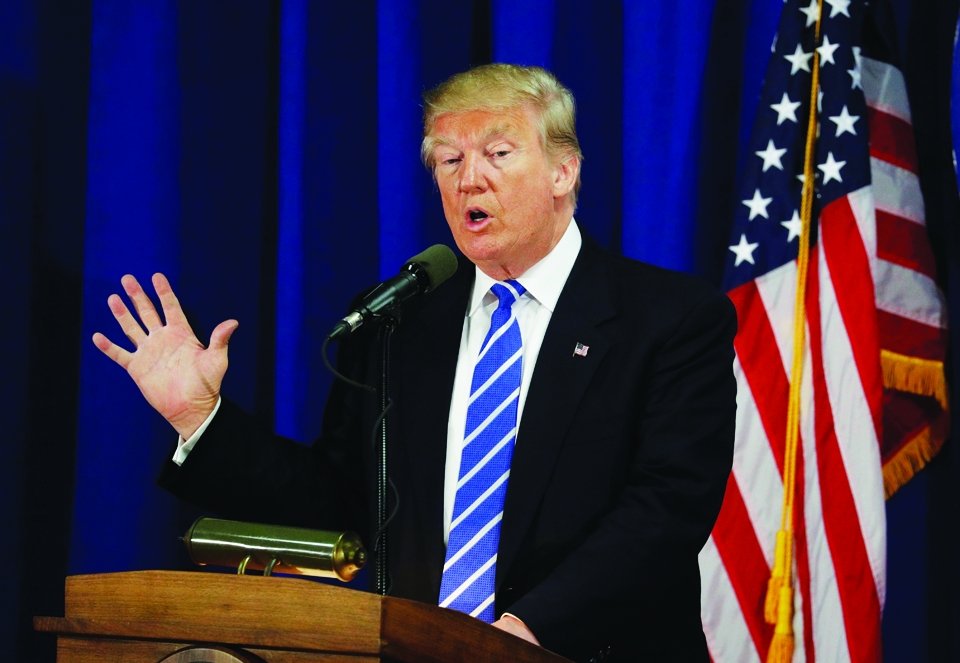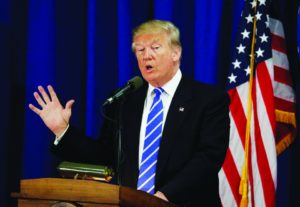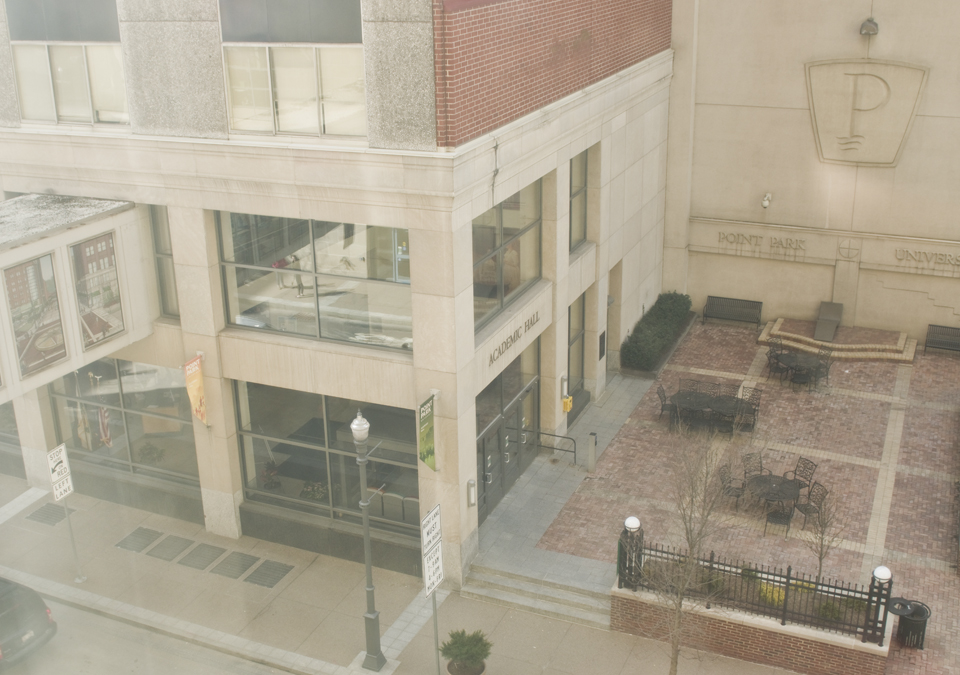

Republican presidential candidate Donald Trump speaks at the Polish National Alliance, Wednesday, Sept. 28, 2016, in Chicago.
By Craig Taylor | Staff Columnist
Donald Trump spoke at the Shale Insight Conference in Pittsburgh on Sept. 22. The event, held at the David L. Lawrence Convention Center, featured discussions and keynote speeches on the development of the oil shale industry.
According to the Associated Press, prior to his speech Trump denounced the “lack of spirit” between whites and blacks in America. In the wake of two police shootings of black males in Oklahoma and North Carolina, Trump called for racial unity amongst the American people. For a candidate who is often accused of inciting racism in his supporters, it was a pretty unifying statement that shows his potential for leadership.
Or it would have been, if not for being directly contradicted by his calling for Chicago police to adopt “stop and frisk” tactics the previous day. At a Fox News town hall in Cleveland, Trump praised New York Mayor Rudy Giuliani for introducing the new policy.
“I would do stop-and-frisk. I think you have to,” Trump said. “I see what’s going on here, I see what’s going on in Chicago, I think stop-and-frisk. In New York City, it’s so incredible, the way it worked.”
A “stop and frisk” can occur when a police officer encounters an individual who they deem suspicious. The officer detains the person and lightly feels the person’s outer clothing in order to determine if the subject is carrying a concealed weapon.
Some would argue that stop and frisk violates the Fourth Amendment’s protection against unreasonable search and seizure, which was the defendant’s’ argument in the Supreme Court case “Terry v. Ohio” (this is also where the practice’s alternative name “Terry stop” comes from). The Supreme Court determined that reasonable suspicion is reason enough for a stop and frisk, as it’s considerably less invasive than an official search which would require probable cause.
However, in 2013, a U.S. District Court Judge ruled that stop-and-frisk was unconstitutional in New York, the city which Trump says it worked so well in. Even current New York mayor Bill de Blasio calls the practice “appalling,” as it was his administration who broke off the appeals process of the decision.
So stop-and-frisk might be morally contentious, but what does racism have to do with it? Well, data suggests that minorities are significantly more likely to be stopped for these arrests. Between January 2004 and June 2012, New York police officers performed 4.4 million terry stops. Only 12 percent of those stops resulted in summonses or arrests, which means that almost nine out of 10 times, those searches came up empty.
Around 83 percent of suspected persons in those 4.4 million stops were Hispanic or black, despite only making up a little over half of the city’s population collectively. So minorities were being targeted despite the vast majority of those investigations turning up nothing.
With today’s volatile police-minority relations, giving police greater unsupervied liberty on how they can conduct business will at best create more tension between the two groups and at worst result in more loss of life. Right before the fatal shooting of Terence Crutcher in Tulsa, Oklahoma, last week, the officer in the police helicopter, who could only see that Crutcher’s hands were raised and that he was black, said Crutcher. “Looks like a bad dude.” Sound familiar?
These prejudices still exist, even if only subconsciously. Trump can’t play both sides by increasing the unjust power of the police while also trying to appear like some kind of advocate for racial equity. Simply saying that you lament the racial divide in our country means absolutely nothing; anyone can wish for change, but a leader fights for that change even if he disappoints his constituents.
By not acknowledging the racial component of stop-and-frisk police tactics, Trump is either ignorant or doesn’t care. And as a presidential candidate, I don’t know which one is worse.



